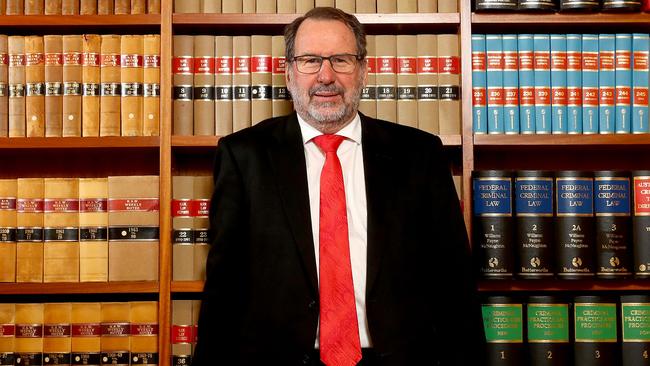NSW Crime Commission maintaining ‘stable’ of informants
More than 700 police reports were made last year, largely in part to a “stable” of informants. Here is how they are managed.
Police & Courts
Don't miss out on the headlines from Police & Courts. Followed categories will be added to My News.
High-profile organised crime figures lining up to dob on their enemies have joined an elite “stable” of informants maintained by the NSW Crime Commission, it can be revealed.
Among the “stable” are also associates of crooks as the elite crime fighting body has confirmed for the first time how it manages highly-confidential informants to crack crimes from murders to drug dealing.
NSW Crime Commissioner Michael Barnes has told a parliamentary committee how in the previous financial year, thanks to informants there were 733 intelligence reports disseminated to other law enforcement agencies including the NSW Police and the Australian Federal Police.
“The Human Sources team manages a carefully identified stable of informants,” Mr Barnes told the committee which oversees the commission.

“Some are high-level organised crime figures, others are simply associates of such criminals.”
Their information led to charges including four murder or murder-related charges, 13 terrorism-related charges, 52 money laundering charges and 196 drug-related charges in the 2019 to 2020 financial year.
But handling informants is hard work, former detective and ex-Crime Commission investigator Dr Michael Kennedy said.
They rarely provide hard evidence but are useful for information and their identities have to remain secret for their own safety even as the commission has teams that work with the state Homicide Squad, the organised crime squad and the Joint Counter Terrorism Team.
“These people (informants) cannot be discarded once the job is done or the court proceedings are over,” Dr Kennedy, senior lecturer in police and criminal justice at Western Sydney University.
“The use of informants also creates many problems that require intervention, patience and tolerance.”
He said you couldn’t criticise crime-fighting agencies for using criminals because the crooks are the ones who know that crimes are being committed.
“Everything you do in organised crime is an investment in the future and you won’t get anything if you treat the crims like shit,” Dr Kennedy said.
“You have to know who you can trust. You have to be able to call on then.”
He said that some are easy to deal with.
“They may not tell you exactly what is going on but they point you in the right direction,” Mr Kennedy said.
Dr Kennedy, who quit policing in 1997, said managing informants could be a lifetime job.
“I still communicate with people I met while a detective and while at the Crime Commission,” he said.
The Crime Commission’s Human Source Team and Intelligence Development Unit are primarily intelligence gathering units that “assist in current investigations and identify emerging criminal groups” according to the commission’s last annual report.
The other agencies helped by information from Crime Commission informants in the previous financial year, according to their annual report, included the Australian Taxation Office, Australian Securities and Investments Commission, the Australian Criminal Intelligence Commission, the NSW Office of the Director of Public Prosecutions and the federal Department of Home Affairs.




